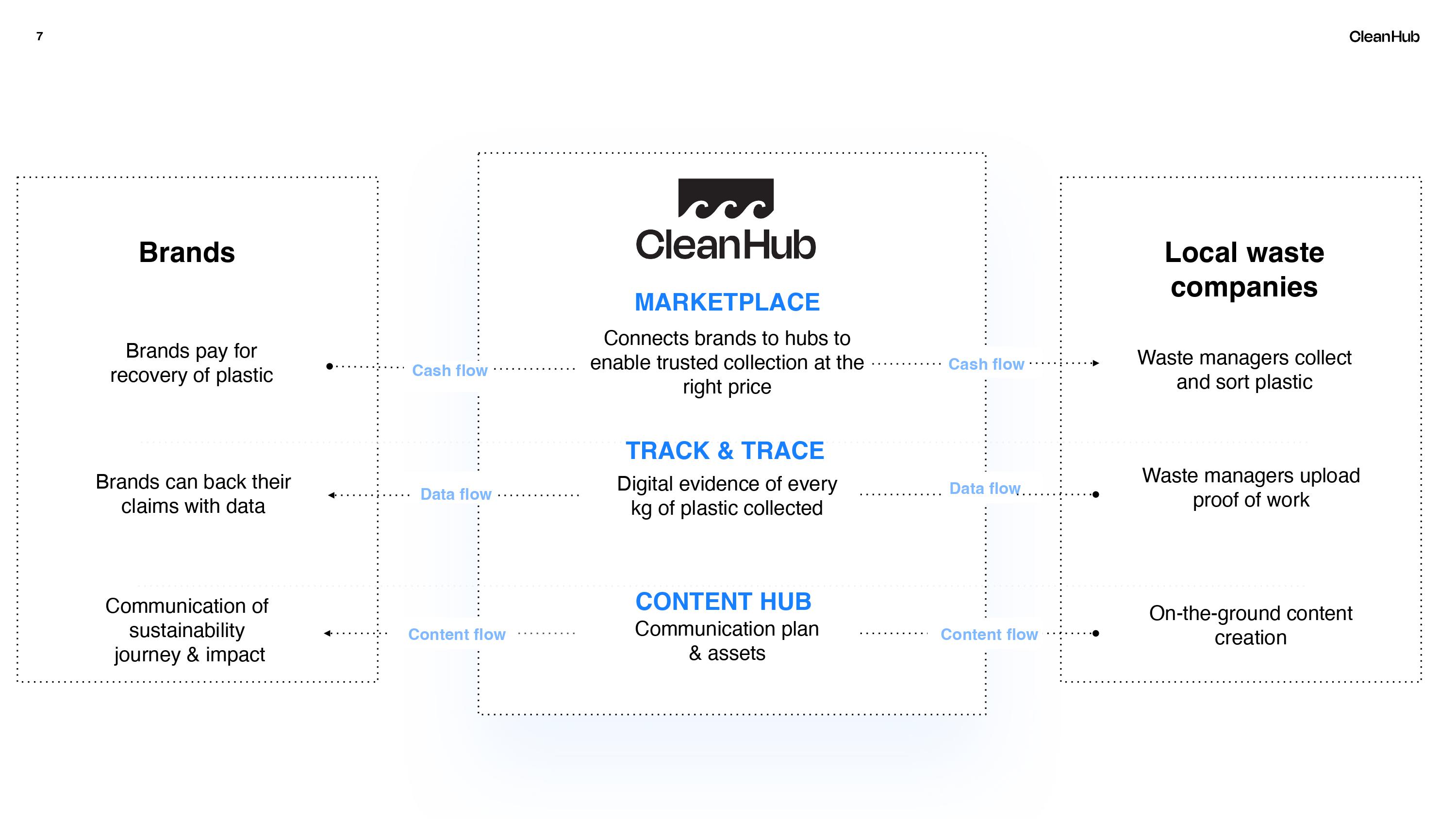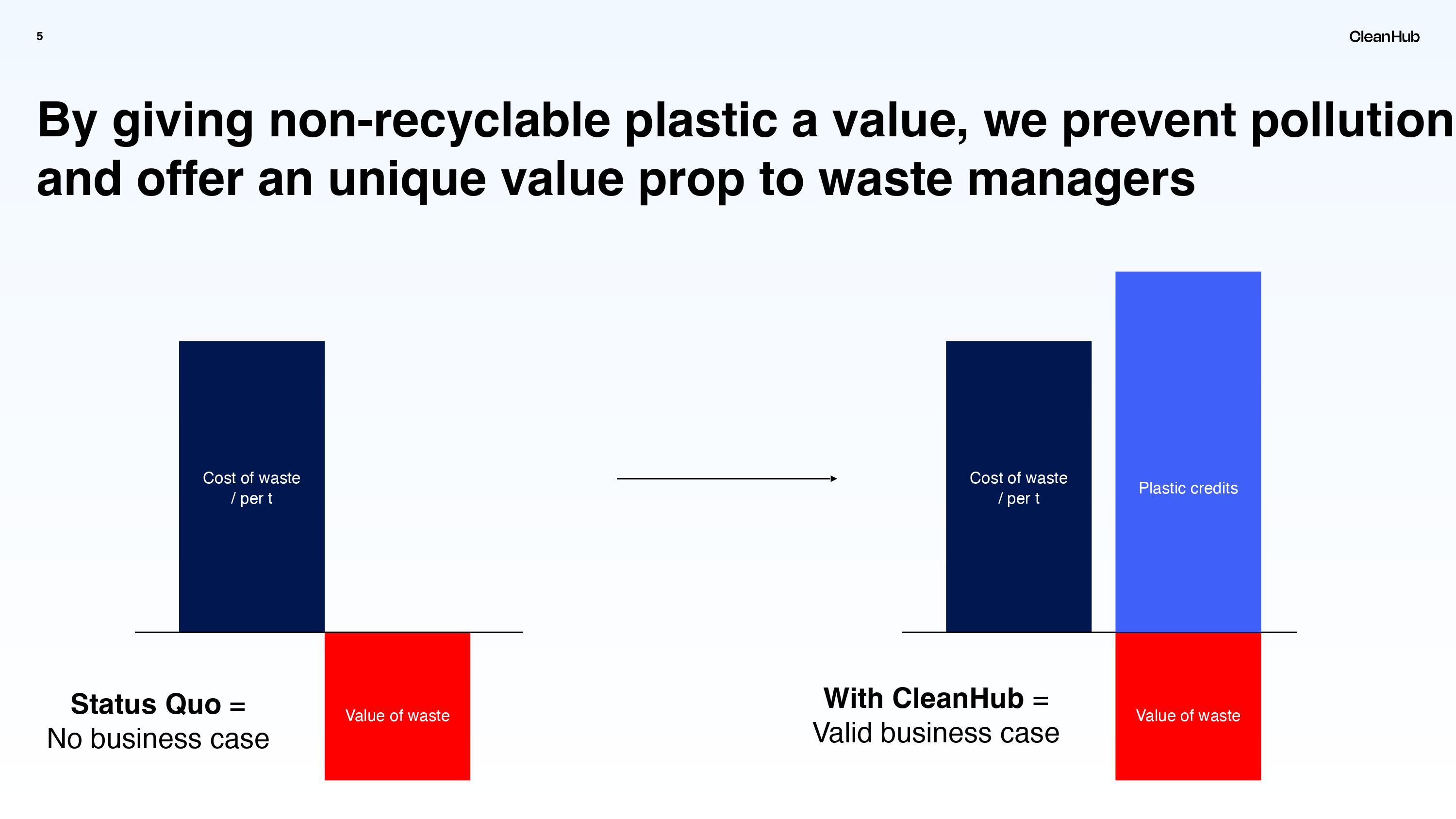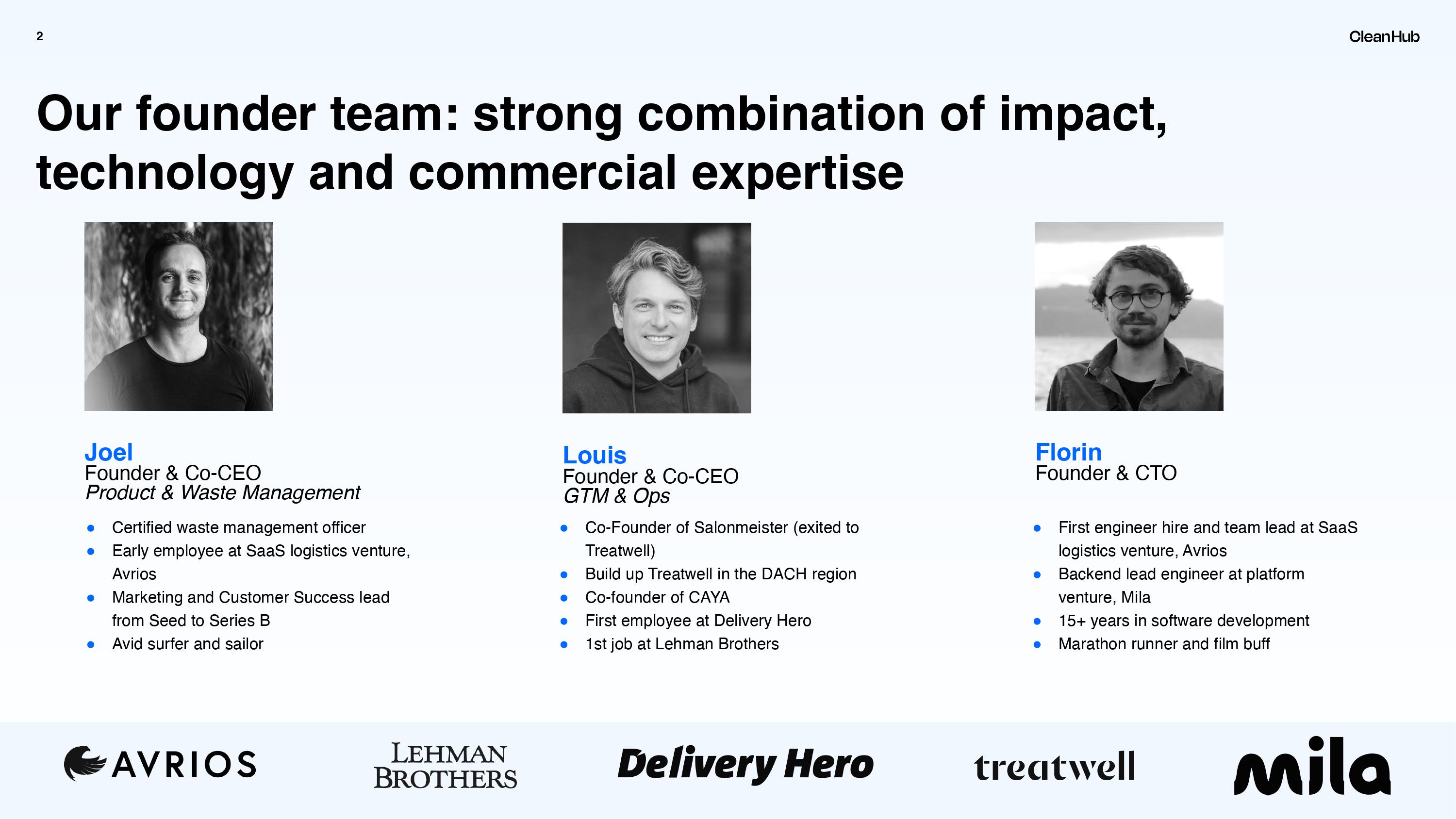Pitch Deck Teardown: CleanHub’s $7M seed deck
Plastic in ocean bad. Plastic not in ocean good. That’s, in a nutshell, the pitch for CleanHub. The company has designed a whole business model and a track-and-trace model around that, so brands can rest assured that their plastics don’t end up in the oceans. Who these brands are, and what happens to the plastic instead, is, unfortunately, a little bit of a mystery.
We’re looking for more unique pitch decks to tear down, so if you want to submit your own, here’s how you can do that.
Slides in this deck
CleanHub used a tight, 12-slide deck to get its point across. The only redaction in the deck is details about Louis’s previous exit. The deck does miss a couple of pieces of information that I’d typically want to see, but before we get to that, let’s take a look at what’s in there.
- Cover slide
- Team slide
- Vision slide
- Problem slide
- Value proposition slide 1
- Solution slide
- Marketplace vision slide
- Product slide
- Technology overview 1
- Technology overview 2
- Value proposition slide 2
- Market size slide
Three things to love
CleanHub is building a marketplace for the circular economy of plastic. That’s a bold and challenging space to be in: Marketplaces are notoriously hard to build, and plastic garbage is a tough sell. Still, there are some cracking slides to convince us otherwise.
A great overview

[Slide 7] Gotta love a good overview slide. Image Credits: CleanHub
CleanHub is built on a bold idea, and that’s going to require some pretty big shifts in the market. This slide, outlining the flow of money, data and content, is an interesting way to start building that story. The clever thing here is that all three of these things have value. Money has value (duh, that’s why we are here, reading this article), but the more subtle value of verifiable data, and the stories that can be told with that data, makes this stand out.
Giving waste value

[Slide 5] Like carbon credits, but for plastic. Image Credits: CleanHub
The biggest innovation CleanHub brings to the space is the introduction of plastic credits, which, if I’m reading this slide right, can make waste tradeable in a way it wasn’t before.
I don’t fully understand how this would work (more on this below), but prima facie, this is a story I haven’t heard before, and it arouses my curiosity.
Team team team!

[Slide 2] If you’ve got a great team, brag about it as hard as you can. Image Credits: CleanHub
Founder/market fit is the name of the game for early-stage startups, and this company is showing it has it in spades: All three founders have a lot of experience, and there isn’t too much overlap here. There’s startup experience from Louis, domain expertise from Joel, and technical expertise from Florin. On paper (or, well, on slide-deck) this looks like a well-formed, experienced team.
CleanHub has two co-CEOs, which gives me pause. The CEO’s role is typically well-defined, and two in this case isn’t always better than one. I would push the team here, focusing on conflict resolution skills. The answer to why there are two CEOs could trigger a number of red flags about team cohesion and staying power.
In the rest of this teardown, we’ll take a look at three things CleanHub could have improved or done differently, along with its full pitch deck!
